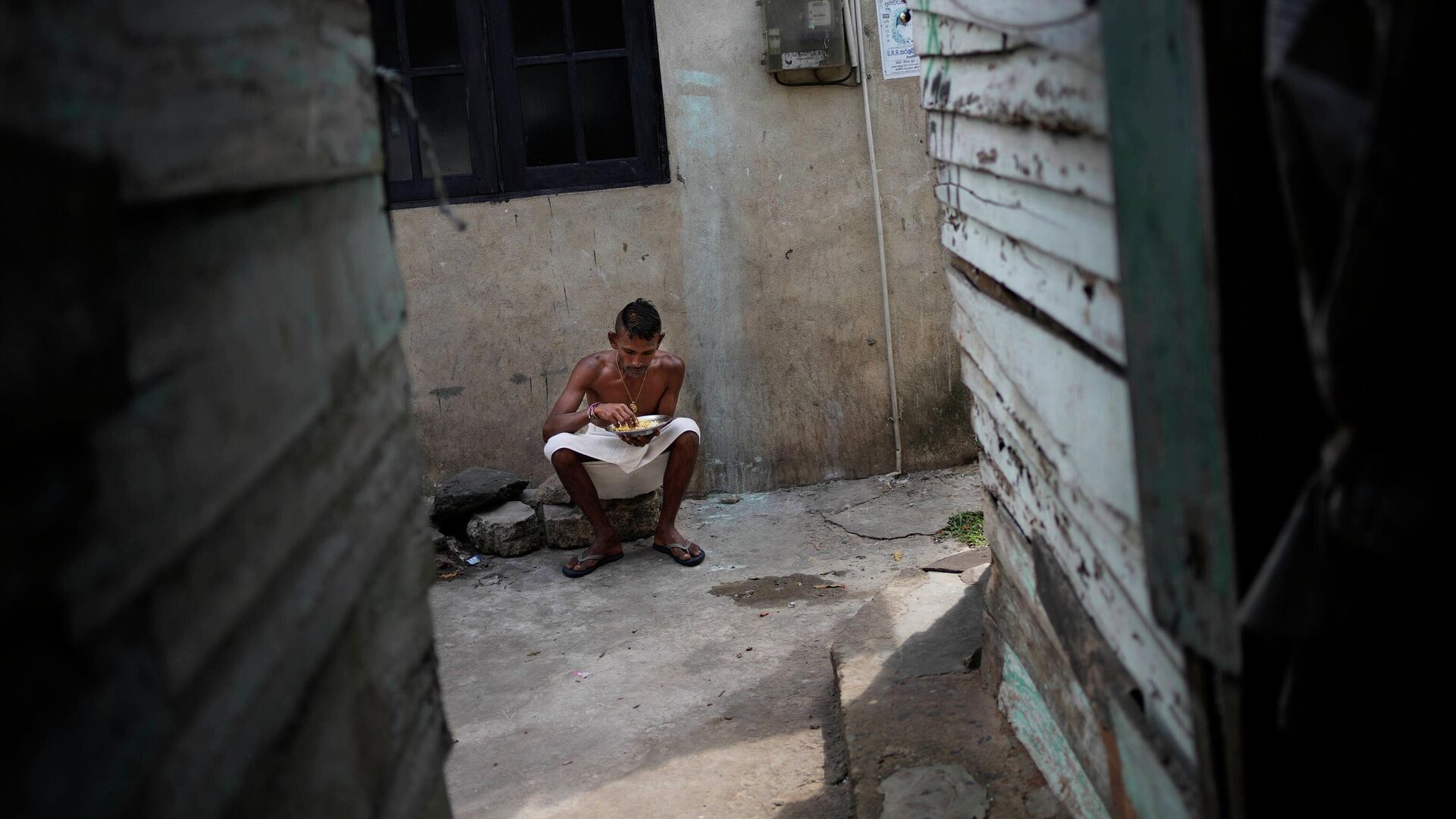https://sputnikglobe.com/20221011/seeking-more-funds-sri-lanka-downgrades-economic-status-to-low-income-state-1101707302.html
Seeking More Funds, Sri Lanka Downgrades Economic Status to Low-Income State
Seeking More Funds, Sri Lanka Downgrades Economic Status to Low-Income State
Sputnik International
For the past year, the Island nation of Sri Lanka has been reeling under a severe economic crisis leading to a shortage of fuel, medicine, and power, followed... 11.10.2022, Sputnik International
2022-10-11T09:35+0000
2022-10-11T09:35+0000
2022-12-08T16:28+0000
india
sri lanka
world bank
imf
imf
imf loan
https://cdn1.img.sputnikglobe.com/img/07e6/0a/0b/1101710304_0:160:3073:1888_1920x0_80_0_0_2534fa1d12c77eb6655f88e90f292bac.jpg
With an aim to get concessionary funds from the World Bank’s International Development Association (IDA), Sri Lanka’s Cabinet agreed to downgrade its economic status from middle to low income.The IDA is a financial institution that grants funds and loans to poor and vulnerable countries across the globe.The country is battling its worst financial crisis since gaining independence. In 2022, for the first time, Sri Lanka failed to pay on its to foreign debts, which amount to around $4 billion due this year.The government is also in talks with creditors on restructuring its more than $51 billion total foreign debt, in which Japan, China, and India are its biggest providers.Meanwhile, the country’s Finance Minister Asanka Shehan Semasinghe is in Washington to seek funds for the cash-strapped country.In August, consumer inflation in Sri Lanka topped 70 percent, mostly driven by high food and fuel prices.
sri lanka
Sputnik International
feedback@sputniknews.com
+74956456601
MIA „Rossiya Segodnya“
2022
Deexa Khanduri
https://cdn1.img.sputnikglobe.com/img/07e4/0c/1e/1081607388_0:0:961:960_100x100_80_0_0_e9e931b8c1e18fb41f3074e2145d7a3a.jpg
Deexa Khanduri
https://cdn1.img.sputnikglobe.com/img/07e4/0c/1e/1081607388_0:0:961:960_100x100_80_0_0_e9e931b8c1e18fb41f3074e2145d7a3a.jpg
News
en_EN
Sputnik International
feedback@sputniknews.com
+74956456601
MIA „Rossiya Segodnya“
Sputnik International
feedback@sputniknews.com
+74956456601
MIA „Rossiya Segodnya“
Deexa Khanduri
https://cdn1.img.sputnikglobe.com/img/07e4/0c/1e/1081607388_0:0:961:960_100x100_80_0_0_e9e931b8c1e18fb41f3074e2145d7a3a.jpg
india, sri lanka, world bank, imf, imf, imf loan
india, sri lanka, world bank, imf, imf, imf loan
Seeking More Funds, Sri Lanka Downgrades Economic Status to Low-Income State
09:35 GMT 11.10.2022 (Updated: 16:28 GMT 08.12.2022) Deexa Khanduri
Sputnik correspondent
For the past year, the Island nation of Sri Lanka has been reeling under a severe economic crisis leading to a shortage of fuel, medicine, and power, followed by violent protests by its citizens. Later, protests led to the powerful Rajapaksha family being deposed from the governing echelons.
With an aim to get concessionary funds from the World Bank’s International Development Association (IDA), Sri Lanka’s Cabinet agreed to downgrade its economic status from middle to low income.
The IDA is a financial institution that grants funds and loans to poor and vulnerable countries across the globe.
“Representatives of international organizations had informed us that if Sri Lanka was categorized as a low-income country, access to funding would be easier,” the country’s Cabinet spokesman Bandula Gunawardane said.
The country is
battling its worst financial crisis since gaining independence. In 2022, for the first time, Sri Lanka failed to pay on its to foreign debts, which amount to around $4 billion due this year.
The government is also in talks with creditors on restructuring its more than $51 billion total foreign debt, in which Japan, China, and India are its biggest providers.
Meanwhile, the country’s Finance Minister Asanka Shehan Semasinghe is in Washington to seek funds for the cash-strapped country.
In August, consumer inflation in Sri Lanka
topped 70 percent, mostly driven by high food and fuel prices.


